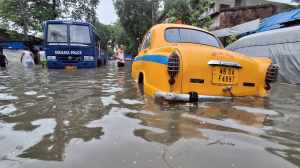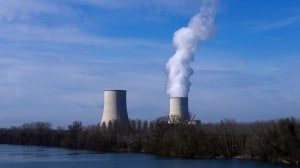US had warned of depleted uranium in Kosovo — Report
NEW YORK, JAN 9: United States had asked the allied armies to take special precautions before entering the Yugoslav war zone, after the bo...

NEW YORK, JAN 9: United States had asked the allied armies to take special precautions before entering the Yugoslav war zone, after the bombing of Kosovo 1999, as the shells fired by its aircrafts contained depleted uranium which posed possible health risks, media reports said today.
A document named `hazard awareness’ issued by the Joint Chiefs of Staff, and made available to the New York Times in Europe by a military official from a NATO country had warned soldiers and civilians against touching spent ammunition or other contaminated materials.
"Personnel handling the heads of anti-tank shells orentering wrecked vehicles should wear protective masks and cover exposed skin, and people involved in the more hazardous clearing tasks should undergo health assessments afterwards", the daily said, quoting the document.
The document contents were likely to compound the fears that radiations emanating from depleted uranium weapons could be linked to cancer among some peacekeepers in Kosovo.
The document dated July 1, 1999, was circulated among the militaries of the countries involved in the Kosovo campaign, and Germany, France and other countries passed the warnings to their soldiers, the Times said.
The Dutch Defence Ministry said it gave specific instructions about how troops were to confront the uranium problem before they went to Kosovo.
"Our troops were told to mark or cordon off contaminated areas, avoid any contact and call in special demolition units" a Dutch Foreign Ministry spokesman was quoted as saying.
A growing number of former peacekeepers from Europe and Canada have contracted cancer or allied diseases, the Washington Post said.
At least 15 have died of Leukemia — six in Italy, five in Belgium, two in Netherlands and one each in Portugal and Spain, the daily said.
While acknowledging the hazards, both the Pentagon and NATO, pointing to medical experts, have denied that any links could exist between exposure to depleted uranium and the illness and deaths of veterans, the Post said.
Defence ministries in several countries, it said, have admitted receiving the American document, which has not been released. It was made available to The New York Times in Europe by a military official from a NATO country.
While NATO officials said it was normal practice to inform troops about hazardous materials, ten countries have ordered investigations into possible links between the illness of soldiers and their exposure to depleted uranium, the daily said.
Photos


- 01
- 02
- 03
- 04
- 05





























